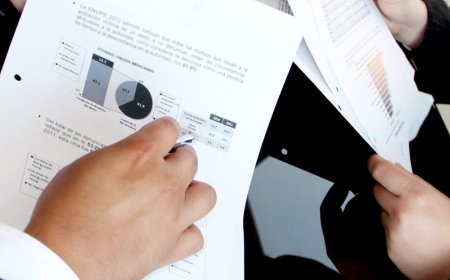Why Chasing Losses Is Always a Bad Idea
In the world of gambling, emotions often run high. A string of losses can tempt even the most disciplined player to make reckless decisions. One of the most dangerous habits a player can fall into is chasing losses the attempt to recover lost money by placing more bets. While it may seem logical in the heat of the moment, chasing losses is one of the fastest ways to spiral into even deeper trouble. Whether youre playing casually or using a platform like thePK365 Game, understanding the psychological and financial pitfalls of this behavior is crucial to maintaining control and enjoying a healthy gambling experience.
Understanding the Concept of Chasing Losses
Chasing losses happens when a player, after losing money, tries to win it back by placing riskier or more frequent bets. This isnt just about placing another bet its about emotional decision-making, driven by frustration, panic, or a desperate need to feel back in control.
For example, someone might lose a few games and decide to double or triple their next wager, hoping a win will erase the previous losses. However, gambling odds rarely change in your favor just because you want them to. This mindset sets up a dangerous loop: the more you lose, the more you bet, and the deeper the hole becomes.
The Psychology Behind Chasing Losses
The urge to chase losses is largely psychological. When people gamble, their brains release dopamine the same chemical associated with pleasure and reward. When you lose, the brain doesn't stop seeking that dopamine hit, and instead drives you to "fix" the bad feeling by trying to win again.
Chasing losses is often tied to:
-
Cognitive distortions: Believing you're "due" for a win after several losses.
-
Emotional regulation: Using gambling to cope with anger, sadness, or stress.
-
Gamblers fallacy: Thinking that past outcomes will influence future ones (e.g., Ive lost five times Im bound to win next).
These emotional traps cloud judgment and lead to poor decision-making, further increasing the chances of losing more.
Financial Consequences
Perhaps the most obvious and painful result of chasing losses is the financial damage. Its easy to underestimate how quickly small losses can snowball when youre placing larger and more desperate bets.
Consider this: If you lose Rs. 5,000 and try to win it back by betting another Rs. 5,000, and you lose again, now youre Rs. 10,000 in the hole. Each time you try to "recover," the amount grows, and your losses multiply faster than your chances of winning.
The compounding nature of these losses can lead to:
-
Empty bank accounts
-
Maxed-out credit cards
-
Debt
-
Broken savings plans
In worst cases, it can affect not just personal finances but also family stability and long-term life goals.
Emotional and Mental Health Impact
Chasing losses doesnt only impact your wallet it takes a serious toll on your mental well-being. The stress of losing, combined with the fear and desperation to recover, can cause significant emotional strain.
Common effects include:
-
Anxiety and panic attacks
-
Insomnia
-
Depression
-
Feelings of guilt and shame
Over time, these emotions can become overwhelming, leading to a cycle where gambling is used as an escape which only makes things worse. It becomes a trap where the emotional damage fuels more gambling, and more gambling leads to deeper emotional wounds.
The Illusion of Control
Many gamblers fall into the trap of believing they can outsmart the system or control the outcome through skill or strategy. While some games involve a level of skill, the reality is that luck and probability dominate in most forms of gambling.
This illusion of control is dangerous because it creates a false sense of confidence. Players may think they just need to "change tactics" or "bet smarter" to turn things around. In truth, the odds don't change because you're losing they remain the same regardless of your emotional state or betting strategy.
Understanding that you cant control the outcome is a key step in avoiding the chase.
The Social Consequences
Chasing losses can also impact relationships with friends and family. Financial strain and emotional instability often spill over into personal interactions, creating stress in marriages, family dynamics, and friendships.
Loved ones may notice:
-
Irritability or mood swings
-
Lack of focus or withdrawal
-
Lying or hiding gambling behavior
-
Borrowing money repeatedly
Over time, these patterns can cause mistrust and isolation, leading to broken relationships and social withdrawal. The support system you need during tough times may start to disappear, leaving you even more vulnerable.
Why Walking Away Is Powerful
It may feel weak to walk away from a loss, but its actually a sign of strength and self-awareness. Real gamblers those who understand the nature of the game know that losses are part of the experience. Accepting that not every session will end in profit is essential.
Walking away protects you from:
-
Emotional breakdowns
-
Compulsive behavior
-
Major financial mistakes
By ending the session, you're setting a boundary. You're taking control over your choices and not letting the game control you. This behavior builds resilience and ensures gambling remains a recreational activity, not a destructive habit.
Creating a Healthy Gambling Routine
To avoid the trap of chasing losses, its important to establish healthy habits. Here are some tips to maintain control and ensure your experience remains enjoyable:
-
Set a budget before playing: Decide how much you can afford to lose and dont exceed it.
-
Establish time limits: Dont let hours slip away. Set a timer and stick to it.
-
Avoid gambling when emotional: Whether you're angry, sad, or stressed, avoid betting emotions cloud judgment.
-
Celebrate small wins and accept losses: You wont always win, and thats okay. Accept it with grace.
-
Keep perspective: Gambling is entertainment, not income.
These simple practices help create a responsible gambling mindset and reduce the risk of impulsive or harmful behavior.
Recognizing Problem Gambling
If chasing losses has become a pattern for you or someone you know, it might be a sign of problem gambling. Here are a few red flags to watch for:
-
Gambling longer or with more money than intended
-
Feeling irritated when not gambling
-
Lying about gambling habits
-
Using gambling as a way to escape problems
-
Needing to gamble with increasing amounts to get the same excitement
Acknowledging these signs is the first step toward getting help. Whether its through counseling, support groups, or self-exclusion tools, help is available and it works.
Stories That Teach Us
Real-life stories of gamblers who fell into the trap of chasing losses often end the same way regret, financial hardship, and broken relationships. Yet, they also serve as cautionary tales. Some were professional players who thought they could beat the odds. Others were casual players who made one emotional decision that spiraled out of control.
What they all share is this: the realization that walking away sooner couldve saved them a lot of pain.
Dont wait for things to get out of control. Learn from the experiences of others and choose a path of control, discipline, and emotional strength.
Final Thoughts
Gambling can be fun, thrilling, and even rewarding but only when approached responsibly. Chasing losses is a harmful behavior that turns a leisure activity into a dangerous gamble with your finances, mental health, and relationships.
The next time you face a losing streak, remember: You dont need to win it back today or ever. Walking away isnt giving up; its winning over your impulses. Whether you enjoy occasional play on a platform like PK365 Game or elsewhere, always play smart, stay aware, and know when enough is enough.
Gambling is a game of chance not a game of recovery. Dont chase losses. Chase balance.



































